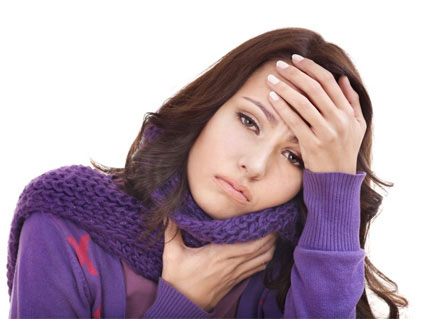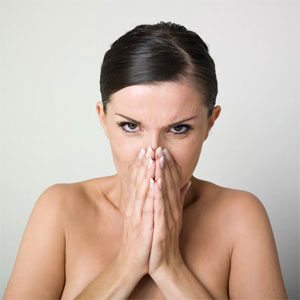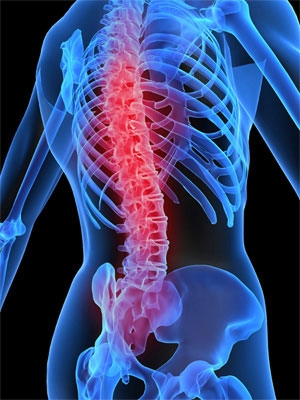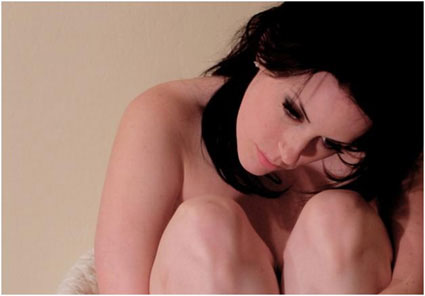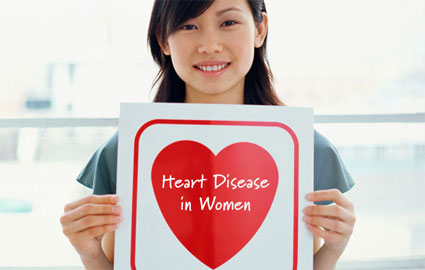Symptoms of menopause vary from woman to woman. Common symptoms are vaginal dryness, depression, tiredness and headaches. Given here is a list of menopausal symptoms and its frequency.Menopausal women experience many health issues on account of the reduction in the estrogen levels. These symptoms affect the quality of life of women.
What are the symptoms of menopause or estrogen deficiency?
The symptoms of menopause are varied, insidious and can frequently be misdiagnosed as endogenous depression, migraine or general debility. However, vasomotor symptoms and vaginal dryness in association with depression, tiredness and headaches of recent onset are characteristics of menopause or estrogen deficiency (although these may not be the initial presenting symptoms or the most distressing symptoms).
The major long-term problems of
menopause include the development of adverse changes in blood lipoprotein concentrations, the generalized atrophy of connective tissues and the progressive reduction in bone mass (risk of osteoporosis).
How common are the various menopausal symptoms?
Frequency of menopausal symptoms in women aged 45-54 years.
| Complaint | % of women |
| Irritability | 92 % |
| Lethargy | 88 % |
| Depression | 78 % |
| Flushes and night sweats | 75 % |
| Headaches | 71 % |
| Forgetfulness | 64 % |
| Weight gain | 61 % |
| Insomnia | 51 % |
| Joint and muscle pain | 48 % |
| Palpitations | 44 % |
| Crying spells | 42 % |
| Constipation | 37 % |
| Dysuria | 20 % |
| Decreased libido | 20 % |
How are the symptoms of menopause treated?
If the symptoms of menopause are unmanageable they are treated with the help of
HRT or hormone replacement therapy. This treatment works by restoring the reduced levels of estrogen in the body of menopausal women. The restoration of estrogen levels help to get rid of various symptoms of menopause like hot flushes, decreased sex drive, dryness in vaginal area, mood swings. It also helps to prevent the bones from weakening thereby reducing the chances
osteoporosis.
If the symptoms of menopause are irritating you, you can consult your doctor immediately to undergo HRT. He will discuss with you the various modes of administering this therapy. You can choose any method for undergoing this therapy depending upon your convenience.
Although, all women can undergo this therapy, it is not advisable for women who have history of blood clots, womb cancer, ovarian cancer or breast cancer. It is also not suitable for women with liver disease or high blood pressure. Women coping with high blood pressure can undergo this treatment only if the blood pressure is under control.
The HRT can be continued for the year or two due to which the symptoms of menopause will start fading away. Once the symptoms start fading away, you can talk to your doctor and find out when you can stop the therapy.
Are there any other alternatives for HRT?
Doctor may prescribe antidepressants for dealing with the symptoms of depression due to menopause. There are other medications that can help to cope with the symptoms like night sweats and hot
flushes. Such medications should be taken only under the prescription of doctor.
What are the ways to deal with menopause naturally?
Women who do not want to opt for HRT can follow some natural ways to deal with the symptoms of menopause. It is very important to follow a healthy lifestyle to deal with such symptoms. Exercising regularly, having a balanced diet and drinking plenty of water can help a lot in dealing with the symptoms of menopause. Cutting down caffeine intake and avoiding spicy foods is also a must. Practising relaxation techniques like yoga, meditation, deep breathing etc; can help in dealing with symptoms like depression, irritability, mood swings and other
psychological issues arising due to menopause.
It is also very important to get rid of unhealthy habits like taking alcoholic drinks, smoking etc; to deal with the symptoms of menopause.












